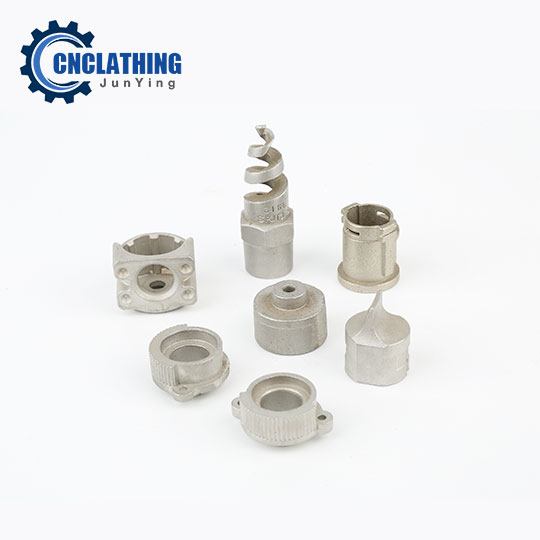Choosing The Best Materials For CNC Machining Projects
Choosing The Best Materials For CNC Machining Projects
Blog Article
Material selection is the first step in every CNC machining process. Accurate, long-lasting, and cost-effective CNC machining material selection is essential for industrial machinery, automobile parts, and precision components. Experts want property information to make the best selections from the vast array of metals and polymers available.
This article delves further into the benefits of CNC machining materials, the most popular metals and polymers used for the process, and how to choose the right materials. For optimal machining efficiency, make sure your project specifications match the properties of the materials you have on hand.
Common Metals for CNC Machining
In CNC machining, metal are the most often used materials because of its strength, durability, and adaptability. Given the CNC application, various metal alloys have varied qualities that would make them more suitable for specific use situations.
Aluminum Alloys - Light weight and strength of the aluminum 6061 and 7075 alloys make them among the most often used in aluminum CNC machining. Excellent machinability of aluminum 6061 allows it to be subjected to sophisticated cutting and shaping operations without sacrificing its structural integrity. This combined with its strong corrosion resistance qualifies for common uses. Conversely, 7075 aluminium alloy has more strength than all the other alloy series. This qualifies it as a top choice for usage in aerospace and other highly stressed situations.
Steel Alloys - Among strong steel alloys with excellent machining qualities are 45V and 4Cr steel. Mechanical production finds this group of alloys perfect since they are mechanically highly durable and resistive to wear. Because of its low cost and great strength, carbon structural steel, Q235 steel, is also extensively utilized in building.
Copper and Brass - Copper is prized for its excellent electrical and thermal conductivity, making it an essential material for electronic components. Brass, on the other hand, offers high strength and corrosion resistance, making it a versatile choice for decorative and industrial applications.
Specialty Steels - Two very machinable grades of strong stainless steel are ZUS 3 and ZUS 4. Precision machining projects that call for very durable materials resistant to deformation and other types of stress often feature them.

Popular Plastics for CNC Machining
One more resource used in CNC machining is various kinds of plastic. Plastics are flexible, light-weight, chemically resistant, hence multifunctional. Applications where metals are inappropriate benefit especially from plastics.
ABS (Acrylonitrile Butadiene Styrene) - Due in great part to its cost-effectiveness, machining simplicity, and strong mechanical qualities, ABS (Acrylonitrile Butadiene Styrene) is a commonly used thermoplastic. ABS is a common choice for mechanical parts and prototypes since it has good durability unlike other engineering plastics.
POM (Polyoxymethylene or Acetal) - Perfect for precise mechanical components, POM (Polyoxymethylene or Acetal) - Polyacetal has great compressive strength and is quite wear and tear resistant. Gears, bearings, and other machine parts needing smooth movement and low friction often feature it.
Factors to Consider When Selecting Materials
Considering a material for a particular project in CNC machining is not simple. It requires assessing the material’s properties, environmental durability, ease of machining, and economical viability. Let's scrutinize these points carefully.
| Factor | Considerations |
|---|---|
| Application Requirements | Evaluate the intended use, such as structural strength, conductivity, or insulation properties. |
| Environmental Conditions | Consider factors like temperature, humidity, and exposure to chemicals or UV light. |
| Machinability | Materials with higher machinability reduce manufacturing time and costs. |
| Surface Treatment | Determine if the material requires additional finishing, such as polishing or coating. |
Aligning Materials with Project Requirements
After you know the fundamentals of metals and plastics comes matching the material to the specifications of the project. For example, if your project entails outdoor activities, then materials such as stainless steel and ABS with high resistance to corrosion are best suited. Likewise, for some electronic components, there may be a need for CNC machining materials with good conductivity or insulation.
To make an informed decision, consult a detailed materials for CNC machining guide that outlines the properties and applications of different materials. This will help you choose the optimal material for your project while ensuring efficiency and precision in the machining process.
Optimizing CNC Machining with the Right Material
It is actually correct that the material selection process does not focus purely on technical requirements. In most scenarios detailed, especially in the case of choosing materials to use for CNC machining, factors that require attention include, but are not limited to, the material’s strength, ease of machining, durability, and how well it can withstand the environment.
Whether you are dealing with metals such as aluminum and steel, or plastics such as ABS and POM, knowing the different qualities of each material helps achieve the desired level of precision, strength, and utility of the final product.
Report this page